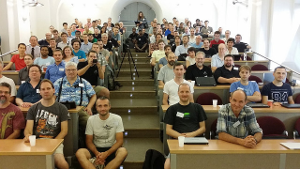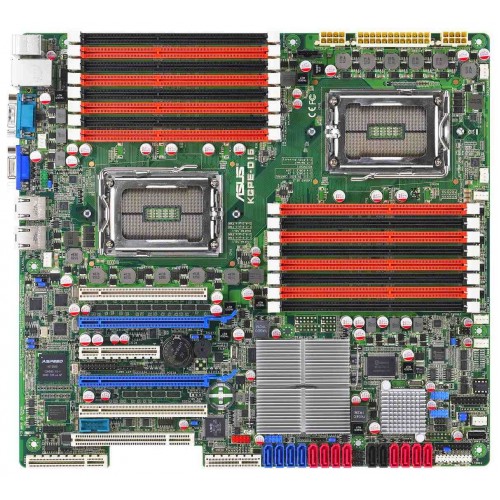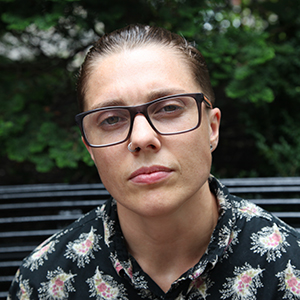FSF Job Opportunity: Outreach & Communications Coordinator
jeudi 16 mars 2017 à 16:01Reporting to the executive director, the Outreach & Communications Coordinator works closely with our campaigns, licensing, and technical teams to edit, write, publish, and promote high-quality, effective materials both digital and printed. These materials are a critical part of advancing the FSF's work in support of the GNU Project, free software adoption, copyleft licensing, free media formats, and freedom on the Internet; and against Digital Restrictions Management (DRM), software patents, and proprietary software. Nearly every publication from the FSF goes through this public-facing position, tying together our work across various constituencies. The position's job functions are rooted in a mix of copy editing, substantive editing, writing, external outreach, and project management.
Examples of job responsibilities include, but are not limited to:
- Stewarding the online publication and editing process for all departments, including copy editing, formatting, posting, maintaining material on our Web sites, and sending out e-mail messages to our lists
- Producing and improving our monthly e-mail newsletter, the Free Software Supporter
- Improving the effectiveness of our audio and video materials
- Editing and building our biannual printed Bulletin
- Promoting our work and the work of others in the area of computing freedom on social media
- Helping to produce fundraising materials and assisting with our fundraising drives
- Cultivating the community around the LibrePlanet wiki and network, including the annual conference
- Working with and recruiting volunteers
- Being an approachable, humble, and friendly representative of the FSF to our worldwide community of existing supporters and the broader public, both in person and online
Ideal candidates have at least one to three years of work experience in copy editing, writing, and free software; proficiency and comfort with professional writing and publications preferred. Because the FSF works globally and seeks to have our materials distributed in as many languages as possible, multilingual candidates will have an advantage. With our small staff of thirteen, each person makes a clear contribution. We work hard, but offer a humane and fun work environment at an office located in the heart of downtown Boston. The FSF is a mature but growing organization that provides great potential for advancement; existing staff get the first chance at any new job openings.
Benefits and Salary
This job is a union position that must be worked on-site at the FSF's downtown Boston office. The salary is fixed at $52,152/year and is non-negotiable. Other benefits include:
- Full family health coverage through Blue Cross/Blue Shield's HMO Blue program
- Subsidized dental plan
- Four weeks of paid vacation annually
- Seventeen paid holidays annually
- Weekly remote work allowance
- Public transit commuting cost reimbursement
- 403(b) program through TIAA
- Yearly cost-of-living pay increases (based on government guidelines)
- Conference travel opportunities
- Potential for an annual performance bonus
Application Instructions
Applications must be submitted via email to hiring@fsf.org. The email must contain the subject line "Outreach & Communications Coordinator". A complete application should include:
- Cover letter
- Resume
- Two recent writing samples
- Three or more edits you would suggest to this job posting
- Links to published works online (optional)
All materials must be in a free format (such as plain text, PDF, or OpenDocument). Email submissions that do not follow these instructions will probably be overlooked. No phone calls, please.
Applications will be reviewed on a rolling basis until the position is filled. To guarantee consideration, submit your application by Sunday, April 9, 2017.
The FSF is an equal opportunity employer and will not discriminate against any employee or application for employment on the basis of race, color, marital status, religion, age, sex, sexual orientation, national origin, handicap, or any other legally protected status recognized by federal, state or local law. We value diversity in our workplace.
About the Free Software Foundation
The Free Software Foundation, founded in 1985, is dedicated to promoting computer users' right to use, study, copy, modify, and redistribute computer programs. The FSF promotes the development and use of free (as in freedom) software—particularly the GNU operating system and its GNU/Linux variants—and free documentation for free software. The FSF also helps to spread awareness of the ethical and political issues of freedom in the use of software, and its Web sites, located at fsf.org and gnu.org, are an important source of information about GNU/Linux. Donations to support the FSF's work can be made at https://donate.fsf.org. We are based in Boston, MA, USA.
More information about the FSF, as well as important information for journalists and publishers, is at https://www.fsf.org/press.


